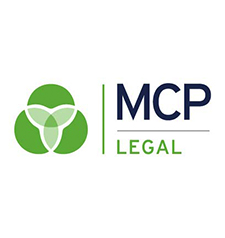
Collecting overdue invoices is a challenge for most SMEs.
What happens if you find yourself chasing a fading debt and you have exhausted all other options? We’ll step you through the process here.
In simple terms, if a party has overdue debts, creditors (the persons owed the money) may take that party to Court in order to recover their debts.
It is difficult to predict with any certainty the stages of the civil procedure through which a matter may run. However, the following is likely:
1. Draw, File and Serve Writ and Statement of Claim;
2. Draw, File and Serve Defence to Claim and any possible Counter Claim;
3. Request for Further and Better Particulars of Claim and/or Defence;
4. Answer any Request for Further and Better Particulars of Claim and/or Defence;
5. Request Discovery for each parties’ Documents;
6. Preparation of Affidavit of Documents and subsequently produce and inspect Documents;
7. Preparation for and attendance at Pre-Hearing Conference (before a Court Registrar – usually an opportunity to settle the matter);
8. Preparation for and attendance at Hearing.
It may be that the matter does not run through all these stages. Once an order has been made in a Plaintiff’s favour, it is up to the creditor to initiate enforcement proceedings against the debtor.
The Court does not enforce the debt on your behalf.
Depending on the size of your claim, the matter will be heard in a different court. Claims of up to $100,000 will be heard in the Magistrates Court. Claims over $100,000 will be heard in the County Court.
Claims of up to $100,000 can also be made to the Victorian Civil and Administrative Tribunal.
This procedure involves the creditor issuing a summons against the debtor to attend Court and answer questions under Oath as to their financial state regarding income, assets and expenses. This summons may be issued against an individual or a company and is conducted in Court. If the debtor fails to appear, a warrant may be issued for his arrest.
Upon review of the statement, the creditor will decide which is the most suitable enforcement methods to obtain payment.
The main ways in which debts can be recovered include:
‣ Attachment of Earnings Application
If the debtor is employed, you can make an application to the Court to “garnishee” the debtor’s wages. If the employer will not willingly provide this information, the creditor may need to issue a witness summons. The Registrar will decide how much the creditor will receive from the debtors’ pay. 20% is the maximum amount able to be garnisheed. Once a decision has been made, the debtor’s employer must be notified if successful.
‣ Warrant to Seize Property
A creditor can apply to the Court to issue a Warrant to Seize the debtor’s property. This is a viable option if they suspect that the debtor possesses the financial ability to pay via lump sum or has seizable goods. If the Sheriff is successful in seizing goods, the issuing and enforcement fee will also be recovered.
‣ Application for an Instalment Order
This is an application which can be made by either the judgement creditor or the judgement debtor. Instalment orders allow you to pay off a debt in set amounts at set intervals.
‣ Bankruptcy
Bankruptcy is a legal process in which a party is declared to be unable to pay his debts as they fall due. It involves handing over control of assets to a bankruptcy trustee. The trustee decides which (if any) of your assets can be sold off to pay your debts.
The Limitations of Actions Act 1958 imposes a six year limitation period on bringing legal action in relation to a contract in Victoria. Debtors have an absolute defence to legal action brought to recover a debt which is six or more years old.
Section 50 of the Australian Consumer Law and section 12DJ of the Australian Securities and Investment Commission Act prohibit physical force, undue harassment or coercion, in connection with debt collection. This seeks to eliminate telephone calls which are unreasonably frequent and/or late at night or early in the morning, deceptive tactics including misrepresentations about the consequences of non-payment or the debt recovery process, and the use of abusive or threatening language. The use of force may also be a criminal offence under state and territory criminal law.
Section 18 of the Australian Consumer Law and section 12DA(1) of the Australian Securities and Investment Commission Act prohibits misleading and deceptive conduct that is in trade or commerce. Most debt collection activities carried out by a collector will be considered to be in trade or commerce. As such, collectors must be careful not to engage in conduct that could be considered misleading to the debtor.
Sections 20 – 22 of the Australian Consumer Law and sections 12CA, 12CB and 12CC of the Australian Securities and Investment Commission Act relate to unconscionable conduct. Unconscionable conduct is that which is particularly harsh or oppressive. As the collector is often in a position of strength, they must be cautious not to exert pressure or unfair tactics over a debtor.
For more information, contact:
e: lawyers@mcpgroup.com.au
p: (03) 9620 2001
w: www.mcplegal.com.au
The advice provided in this blog is intended to be general advice only and should not be relied upon.